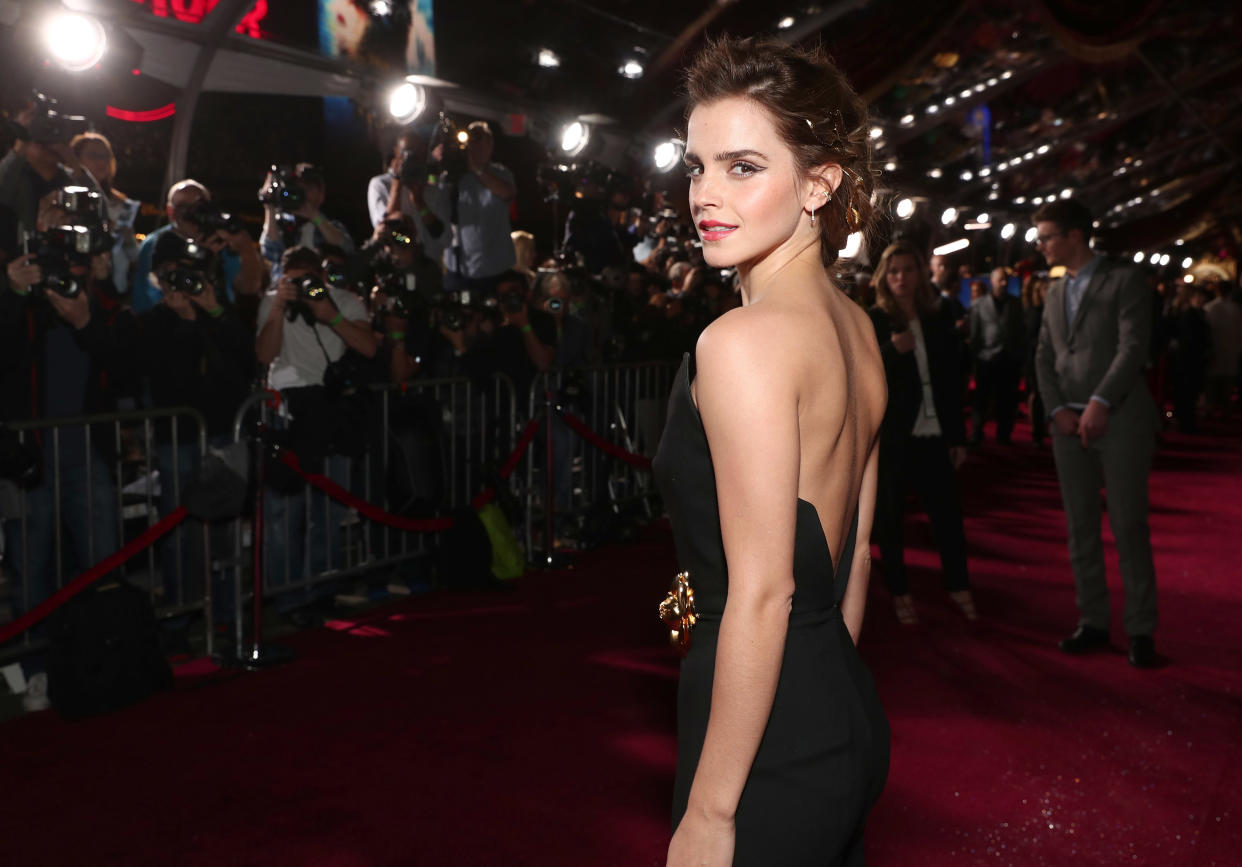Emma Watson Needs to Engage With Her Critics


Emma Watson recently came under fire for showing a little bit of underboob in a shoot for Vanity Fair, getting called a “hypocrite” for being a self-identified feminist willing to pose for a racy photo (the photo was actually on the conservative side for a fashion shoot). In response, Watson told the BBC that the backlash proved there are still many misconceptions about feminism. “Feminism is about giving women choice,” she said. “Feminism is not a stick with which to beat other women ... It’s about freedom, it’s about liberation, it’s about equality.” And it has absolutely nothing to do with her tits. I more or less agree. I don’t object to women posing in little-to-no clothing, whether for a magazine or their personal Instagram - I did the latter just the other day. But I do believe Watson is guilty of a particular hypocrisy.
In an April 2014 interview with Tavi Gevinson in Wonderland Magazine, Watson commented on the aesthetics of Beyoncé’s self-titled 2013 visual album saying, “I was really conflicted [watching the videos] … On the one hand she is putting herself in a category of a feminist, this very strong woman ... but then the camera, it felt very male, such a male voyeuristic experience of her." Like Watson, Beyoncé self-identifies as a feminist; she famously sampled Chimamanda Ngozi Adichie’s “We Should All Be Feminists” in “***Flawless.” So why was Watson doubting Beyoncé’s feminist credibility at all?
In some fairness, as Watson recently pointed out in a tweet, the full transcript of her interview does show she was struggling with her thinking (“I still haven’t really formulated my own ideas,” she said) and she does give Beyoncé credit for putting “feminism and femininity and female empowerment on such a broad spectrum.” But by simply tweeting the comments in response to her backlash, as opposed to engaging in a necessary conversation, she ultimately dismissed the valid concerns put forth by black feminists. Why does a photograph of Watson get to be “artistic” while Beyoncé’s visual album - a massive undertaking - is presumed to be “appealing to the male gaze”? What is it about black women’s bodies that automatically renders us sexual objects? And why is Watson more concerned with defending her own feminist cred than opening herself up to a dialogue?
Historically, the media and certain feminist contingents will rush to silence the critiques of celebrities such as Watson by leveraging their virtuosity (the idea that white women are the gold standard and they must be protected), the perpetual victimhood of their whiteness, and “choice feminism” (the idea that a woman merely making a choice is an inherently feminist act) - and that's flatly unfair. The white women coming to Watson's defense do not trip over themselves en masse to defend the likes of Amber Rose’s sex-positive feminism, which centers her experiences as a frequently slut-shamed former stripper. They don't run to the likes of Serena Williams or Laverne Cox, who have both been criticized for their own sexy photo shoots despite being important representations of black women’s bodies. Why does Amy Schumer get to be “brave” and “empowering” for posing nude, and Lena Dunham can show her naked body any and everywhere and still be hailed as the feminist voice of a generation? Is it because Dunham toys with unattractiveness and weirdness as opposed to appealing to overt sexuality - a sexuality from which it seems impossible for black women to escape?
If Watson is a hypocrite, it isn’t because she’s a feminist who posed for a magazine and we kind of saw her breasts - it’s because she has the audacity to express incredulity at being criticized for the very thing she once criticized Beyoncé for, even if only in passing; she previously dealt in misogynoir (misogyny directed towards black women, who experience discrimination based on both race and gender), and rather than fully account for and consider that criticism, she has merely (and quite dismissively) tweeted the entirety of her fairly ambivalent comments. Where is the dogmatic and unequivocal feminist defense of Beyoncé that has been and always is afforded to Watson? As we’ve seen time and time again, #SolidarityIsForWhiteWomen.
Few earnest critiques are holding Watson hostage for her 2014 comments. But as Trudy, founder of the critically important black feminist space Gradient Lair, tweeted: "Change without contrition is performance." Thorough feminist analysis does not come in one day or even one year. My understandings about sex work and trans issues and even race were still developing in 2014, and I’ll never stop learning. No one on the planet sashayed out of the womb with a fully formed gender analysis or perfectly curated set of opinions: Maturation takes years! But as a person with some modicum of a platform engaging feminism and radical politics in public, I believe that I, and others like me, have an obligation to be transparent in our evolutions and learning processes. It can be, admittedly, a bit messy and demanding, but if Emma Watson is to hold any kind of feminist authority, that transparency applies to her as well.
Follow Zoé on Twitter.
You Might Also Like

